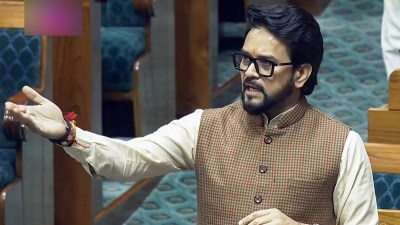Explained: In US Presidential Elections 2020, why Iowa caucuses matter
Caucuses and primaries are the processes available to the 50 American states (plus Washington DC and outlying territories) to choose the two major parties’ nominees for President.
 Democratic hopeful Joe Biden in Des Moines, Iowa on Sunday. (Reuters Photo)
Democratic hopeful Joe Biden in Des Moines, Iowa on Sunday. (Reuters Photo)
The Iowa caucuses, traditionally the first event in the US presidential election calendar, are scheduled for Monday evening (Tuesday morning in India). The Iowa caucuses signal the start of the long process by which the two major parties choose their nominees for the presidential election.
The election takes place on the first Tuesday of November in the election year — this year, the election will be held on November 3. The two nominees will be formally announced at the Democratic national convention in Milwaukee, Wisconsin, between July 13 and 16, and the Republican national convention in Charlotte, North Carolina, between August 24 and 27.
Explained: What is the difference between caucuses and primaries?
Caucuses and primaries are the processes available to the 50 American states (plus Washington DC and outlying territories) to choose the two major parties’ nominees for President. The contests — referred to as the primary race — are being held this year between February 3 and June 2. After Iowa will be the New Hampshire primary on February 11.
Since the Republicans all but have their nominee already — President Donald Trump — the 2020 primary race holds meaning only for the Democratic party.
Some American states hold primaries, some hold caucuses, and a third group holds a combination of the two systems. Primary elections are conducted by governments; caucuses are private events held by the parties.
In primaries, voters go to polling stations and check the box against the name of their favoured candidate. Caucuses are lengthier processes in which voters attend meetings at public places such as school gymnasiums, churches, and community centres, debate candidate preferences and, when it comes to voting, openly raise their hands for their choice.
The caucus system favours candidates with strong, active bases over those with broader support — and is often criticised for being vulnerable to intimidation, and inconvenient for employees who work in shifts and parents who might find it difficult to attend an in-person meeting of unpredictable length.
Until the 1970s, most states held caucuses, but primaries are more popular now. Besides Iowa, nine other states and three territories have a system of caucuses. This year, however, the Democrats will hold caucuses in just four states — Iowa, Nevada, North Dakota and Wyoming.
Explained: What went wrong with Iowa Democratic caucuses?
Iowa: first in the calendar
Iowa has always had caucuses, but they moved into the national spotlight in the 1970s. As the Democratic party tried to become more inclusive, the process of holding precinct meetings became more elaborate. This required an earlier start, and in 1972, when George McGovern became the Democratic nominee Iowa ended up becoming the first state to hold caucuses. It has since ensured that it remains the first in the nation, even when other states have brought forward their dates.
The Democratic (and Republican) caucuses in Iowa will begin at 7 pm central time on Monday (6.30 am on Tuesday in India) at most locations. Voters will meet at over 1,600 locations, and the casting of votes could take up to two hours. Results from across the state will be tallied once they are done. In 2016, when Hillary Clinton edged out Bernie Sanders by a thin margin, the result was announced only the following morning; on the Republican side, Ted Cruz beat Trump comfortably, and was declared winner within a few hours.
A momentum builder
It is vital to note, as The Des Moines Register, published from Des Moines, Iowa, underlines in a video explainer on its website, that the Iowa caucuses are not first because they are important; rather, they are important because they are first.
Being first brings a lot of attention from the media — who provide Americans with their first idea of the support that a candidate enjoys. This is especially significant given the wide and fractured field on the Democratic side in 2020. The winner in Iowa will get a large shot of media attention; failure for a perceived frontrunner will almost certainly deliver a blow to their campaign.
The disproportionately large media attention — at 41, the state has fewer delegates than many others — means many candidates build their election strategies around Iowa. That Iowa can point to the direction a run might take has been recognised since McGovern (1972) and Jimmy Carter (1976) — and Barack Obama said that the Iowa caucuses had given him the early momentum for the successful run that ultimately took him to the White House.
📢 Express Explained is now on Telegram. Click here to join our channel (@ieexplained) and stay updated with the latest
- 01
- 02
- 03
- 04
- 05






































